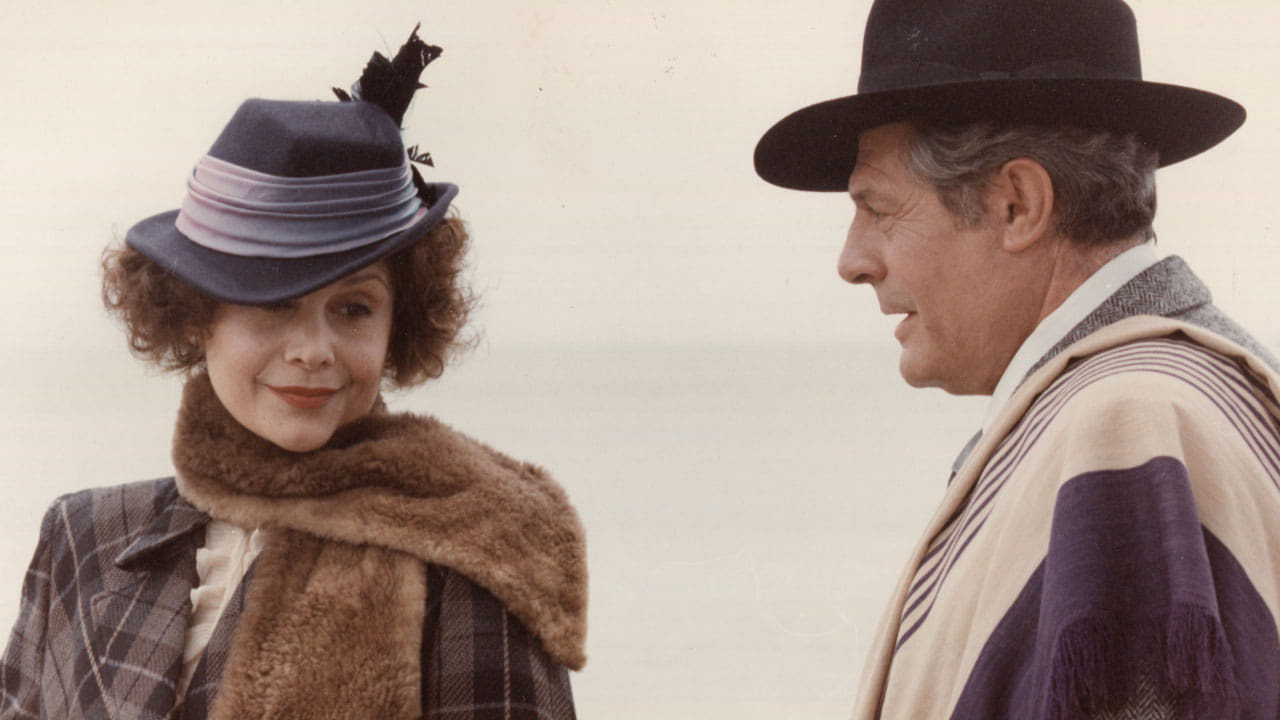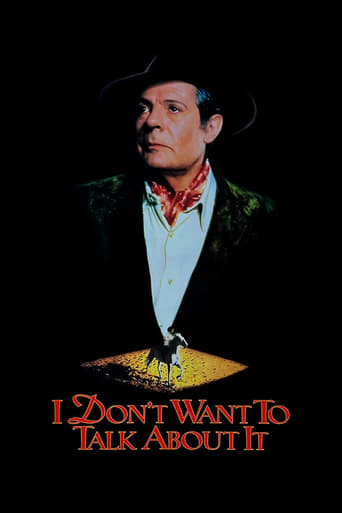

Dreadfully Boring
... View MoreTells a fascinating and unsettling true story, and does so well, without pretending to have all the answers.
... View MoreI enjoyed watching this film and would recommend other to give it a try , (as I am) but this movie, although enjoyable to watch due to the better than average acting fails to add anything new to its storyline that is all too familiar to these types of movies.
... View MoreThis film is so real. It treats its characters with so much care and sensitivity.
... View MoreA sweet, funny, odd, almost fairy tale of a film, with darker, tragic overtones. A mother reacts to the fact that her daughter is a dwarf by just refusing to deal with it herself, and forcing the town to ignore it, (as indeed they ignore all unpleasant truths), turning her into an educated, artistic fascinating young lady. Meanwhile an older playboy in town, suddenly falls for the young dwarf, seeing in her the woman that will finally make him happy. There are a few emotional and logic leaps here, and some parts drag, and some jokes (the senile, incomprehensible mayor) get old. But Marcello Mastroianni is so wonderful and human as the elder man trying to court this young girl that he makes up for a number of shaky moments. If the other leads had been up to his level, this could have been a much deeper film. But for me, Alexandra Poedsta who plays Charlotte, the little daughter, simply doesn't have the charisma or ease to make the love story really work. She has a slight uncomfortable awkwardness in front of the camera, that kept me always aware she was acting, and thus made it hard for me to fall in love with her along with Marcello. But it does get points, as Time Out puts it, for being a tender subtle movie that never romanticizes itself. It's certainly a unique, one-of-a-kind film, and we have far too few of those.
... View MoreWhen we think of fairy tales, the most common scenario that comes to mind is like a typical Disney movie with an unfortunate girl turning into a princess by finally having his "Prince Charming". However, in an Argentinean film called 'De eso no se habla', this scenario is sort of warped into a dimension that takes the idea of fairy tales and totally disregards age, physical appearance, and morality all together. This film thankfully is a comedy, or a black fairy tale comedy, so the events which take place in this film end up supporting the genre.Ludovico D'Andrea, the leading male of this film, is a well-established man who is longing for love. Charlotte, an intelligent and bright young woman, catches the eye of D'Andrea despite her obvious appearance of being a dwarf. D'Andrea asks the permission of Charlotte's mother Leonor, who has heavily sheltered Charlotte throughout her childhood, to marry Charlotte. The events which take place during and after the marriage are what turn this fairy tale into something different.Argentinean romantic-comedies definitely are of an acquired taste. For example, during the wedding of D'Andrea and Charlotte, the old mayor of their town dies on his wheelchair and his death is strategically covered by Leonor and her assistants. Even during the reception following after the wedding, Leonor and her assistants place the deceased mayor in a tub full of ice in order to preserve his body until after the reception. Scenes like these were what made this film have a sort of awkward comical value and may have given American viewers an odd perspective of the Argentinean culture. Even little things like D'Andrea dancing with Charlotte with her body completely off the ground just made the film feel a little awkward, but still with a little sense of sweetness like of a fairy tale.
... View MoreFor the umpteenth time in recent years I find myself rejuvenated after watching a film from Latin America, although 'de eso no se habla' has little clear references of being Argentine, as perhaps 'y tu mama tambien' displays its Mexican-ness, and 'cidade de deus' is clearly located in Brazil. Indeed, were it not for the musical Argentine accents, and the use of the 'vos' form in the second person exclusive to Argentina, Paraguay and Uruguay, one would struggle to locate the quiet provincial village San Jose de los Aldanes on a map of the Spanish speaking world. Unlike the more recent 'Nueve Reinas', which bursts at the seams with Buenos Aires slang - 'voludo,' pelotudo,' etc - this subtle emotional picture questions Argentine society from the peripheries, also making several allegorical references to influential global film-makers.The film hinges on the dual between the Doctor and Ludovico, a well travelled man now retired in this quiet society. The wound the latter receives places him in a hospital ward, where he is visited by Leonor and her precocious daughter, the midget Charlotte. The dual scene is symbolic, as it recalls a tradition in Argentine society that displays manhood, and is common in the works of Jorge Luis Borges, also recalling the cowboy-esque tradition of the 'barbaric', uncivilized gaucho figure. It seems to be this moment in which Ludovico makes his decision to ask for the hand of Charlotte in marriage, a decision that seems crazy. Why would a man, already confirmed by the upper-class ladies of the village to be able to have any women he wants, and idolised by the working women in the local brothel, choose this deformed fifteen year-old sheltered from society by her protective mother over all the other possible ladies? Madness surely. However, as the women leave his hospital room, the camera focuses on them, before panning back to the bed where Ludovico had received his visitors. It is empty, and the blowing curtains betray the open window, his escape. This allusion to One Flew Over The Cuckoo's Nest instantly reveals it not to be Ludovico who is crazy, but the society that may condemn him for his marriage to the musically gifted Charlotte, as Kesey's society condemned the 'mute' Indian Chief. (The reference is a motif in the film's narrative, as Ludovico accuses the Doctor of being a cuckoo before the dual takes place.)Indeed, this marriage becomes the axis on which the film pivots, turning the society around towards modernisation through Charlotte's influence. Firstly she civilises the errant Ludovico, ending his regular trips to the brothel, and the marriage coincides with the death of the town mayor, Saturnino, who cannot speak properly and symbolises the backwards of society and the fact that no-one seems to understand what comes from the mouth of those in society's positions of power. He seems in charge of this world, and seems to live in the brothel. His death promotes Ludovico to mayor, and the civilising influence of Charlotte leads to progress and modernity.This echoes the message presented by David Lynch in the 'Elephant Man'. Society must learn form those who are different. Charlotte, at first a sheltered freak comparable to the gnomes her mother buries at the film's start, is an object of beauty and regeneration, from whom we can learn and use their inner strength and morality for a model we can only try to replica. The allusions to Lynch are cemented by the arrival of a circus, and the focusing upon the face of the Elephant, juxtaposed with shots of the Lion. This reveals the Elephant, the freak-like character - Charlotte - to be the King of the society, a role model and a leader. However, unlike the caged Lion, Charlotte is free to leave, and join the circus. Unlike Lynch's film, which begins with the 'freak' John Merrick in a circus and uses his death as an escape for a cruel society which held no position for a man like him, the circus frees Charlotte from a society that doesn't deserve her. When the caged bird is released, she chooses to sing her song, then fly away and leave behind those who had imprisoned her in the first place. Without her, Ludovico and her beautiful mother are nothing, and the society can crumble into the corrupt decay it was in before her marriage broke the spell.The message is clear. Instead of condemning those who are different, they must be treated as human beings who have qualities like or superior to ourselves. This understanding harmonises society and creates a better place for everyone. This is especially resonant in Argentina, where physical beauty is regarded as the barometer of social status in many people's eyes. Furthermore, the fact that Charlotte is a fifteen year old girl, reveals the director Bemberg's message that the hope for the future does not lie in corrupt old men like Saturnino (are you watching Carlos Menem?!), but in the other, the young female, the artist (it is her playing of Schumann that is the film's emotional high point). Female artists, such as the director herself, are the hope for a better future. It becomes a film that places hope in the nation's youth, when the narrative voice is revealed to be Mohame, a young boy. Argentines must try to understand those who are different, and not put people like Charlotte in circuses so they can stand and point and laugh at them. This message is at once local and universal, and becomes an example of great art in the process.This was the first, but definately not the last Bemberg film, I've seen. I hope the others are as poignant, as clever, and as enjoyable as 'de eso no se habla'.
... View MoreIt stars one of the world's greatest actors, Marcello Mastroianni, who plays a sophistated world traveler, now retired to a small town. He is immediately drawn to a much younger woman. Charlotte is the smartest, most talented woman in town. They are a perfect match but.....Charlotte is a dwarf and has been sheltered from the realities of life by her mother. When the real world intrudes in a twist of fate, the love between them takes an unexpected turn. A charming fantasy that lingers in the mind.
... View More